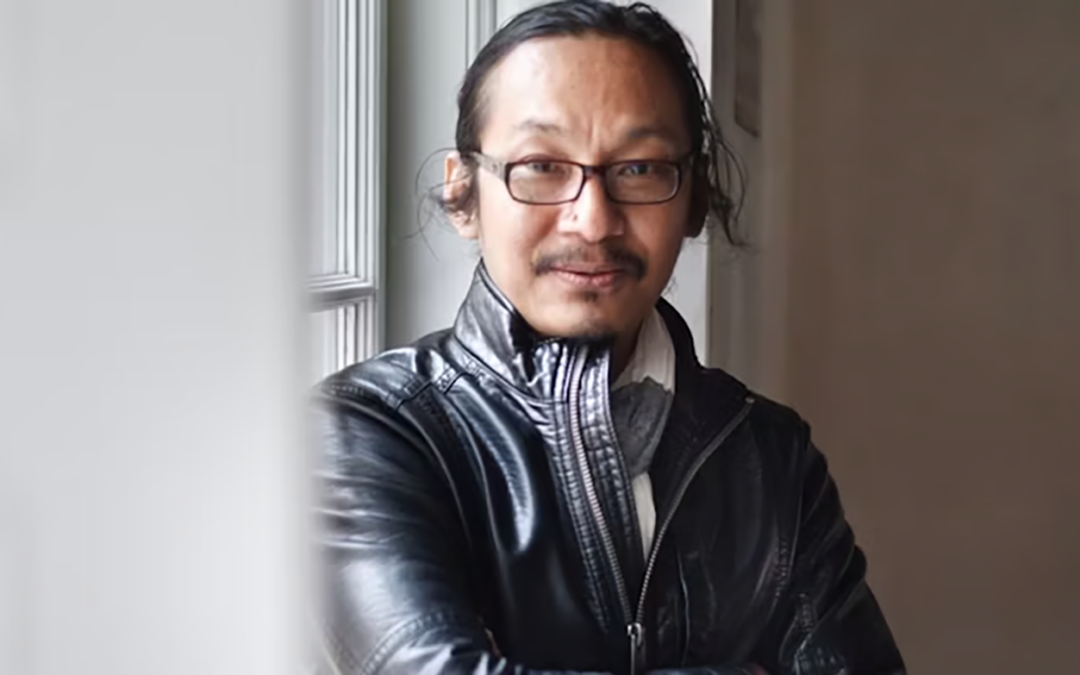Min Htin Ko Ko Gyi
Director, Filmmaker, Poet
Myanmar, {Burma}
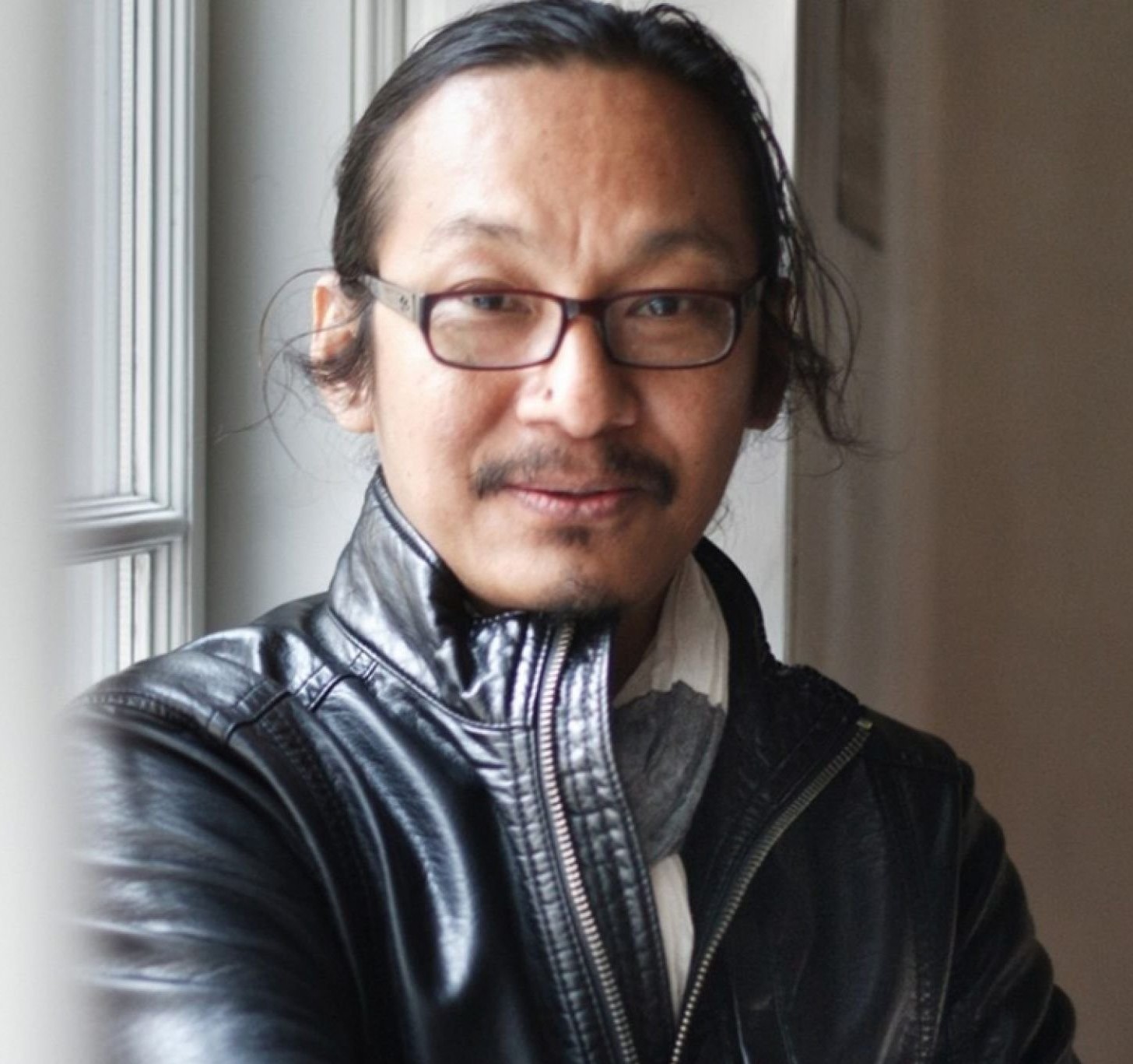
UPDATE: Min Htin Ko Ko Gyi was detained by military forces in the early morning of February 1, 2021 after military authorities in Myanmar seized control of the country’s infrastructure and parliament in a coup d’état. The coup delivered a severe blow to human rights and free expression in Myanmar, leading to a violent crackdown on public and private life, with widespread censorship of artists, writers, civil society leaders, journalists, and social influencers. Min Htin Ko Ko Gyi was among the first wave of prominent creative artists and writers to be targeted by the military, and he managed to post a warning on social media as he was being detained. A handful of celebrities and actors arrested for their opposition to the coup were pardoned in March of 2022. Despite their release to “use their art to help with nation building,” Min Htin Ko Ko Gyi and several other artists, writers, and musicians remain imprisoned.
UPDATE: On February 21, 2020, Min Htin Ko Ko Gyi was released from Insein Prison. He wrote two screenplays while in prison, and called for a change to the criminal code upon his release. The remaining charges against him under Section 66(d) were dropped.
Two decades ago, Min Htin Ko Ko Gyi had no intention of becoming a filmmaker. After pursuing an engineering career in Singapore, he returned to his native Myanmar in 2003 to be closer to his family. The following year, hoping to earn some money on the side, he made an unlikely film debut: Maung Yar Zar Naw Win (Clone), a parodic story of a famous actor’s clone. One year later, a visit to Namb Swe in northern Thailand spurred Ko Ko Gyi to make a documentary on a group of Padaung refugees who fled Myanmar and now reside in small mountainous villages on the Thailand/Myanmar border. The resulting short film, Human Zoo (2005), brought Ko Ko Gyi international recognition, albeit a screening ban in Myanmar due to its negative depiction of the conditions that forced the Padaung people to flee the regime.
In the fifteen years since, Ko Ko Gyi has directed eight feature-length films and two documentaries, the most recent being Thanakha (2012), a documentary about Aung San Suu Kyi, which remains a work in progress. Both in and out of his films, Ko Ko Gyi has become a leading voice for human rights in Myanmar and a devoted advocate for Burmese film and artistic freedom.
Today, however, Ko Ko Gyi sits in jail, awaiting trial for social media posts critical of Myanmar’s military. Ko Ko Gyi is the most recent target of a pattern in Myanmar to persistently crackdown on dissent. He was charged under Section 505(a) of Myanmar’s Penal Code and awaits potential charges under Section 66(d) of the Telecommunications Act for expressing a less-than supportive perspective of the junta and their well-documented war crimes. He now faces trial and the potential of a two-year sentence. His posts questioned the legitimacy of the 2008 military-drafted constitution, which does not fully guarantee the rights of Myanmar’s ethnic minorities and ensures 25% of parliamentary seats to the army’s nominees.
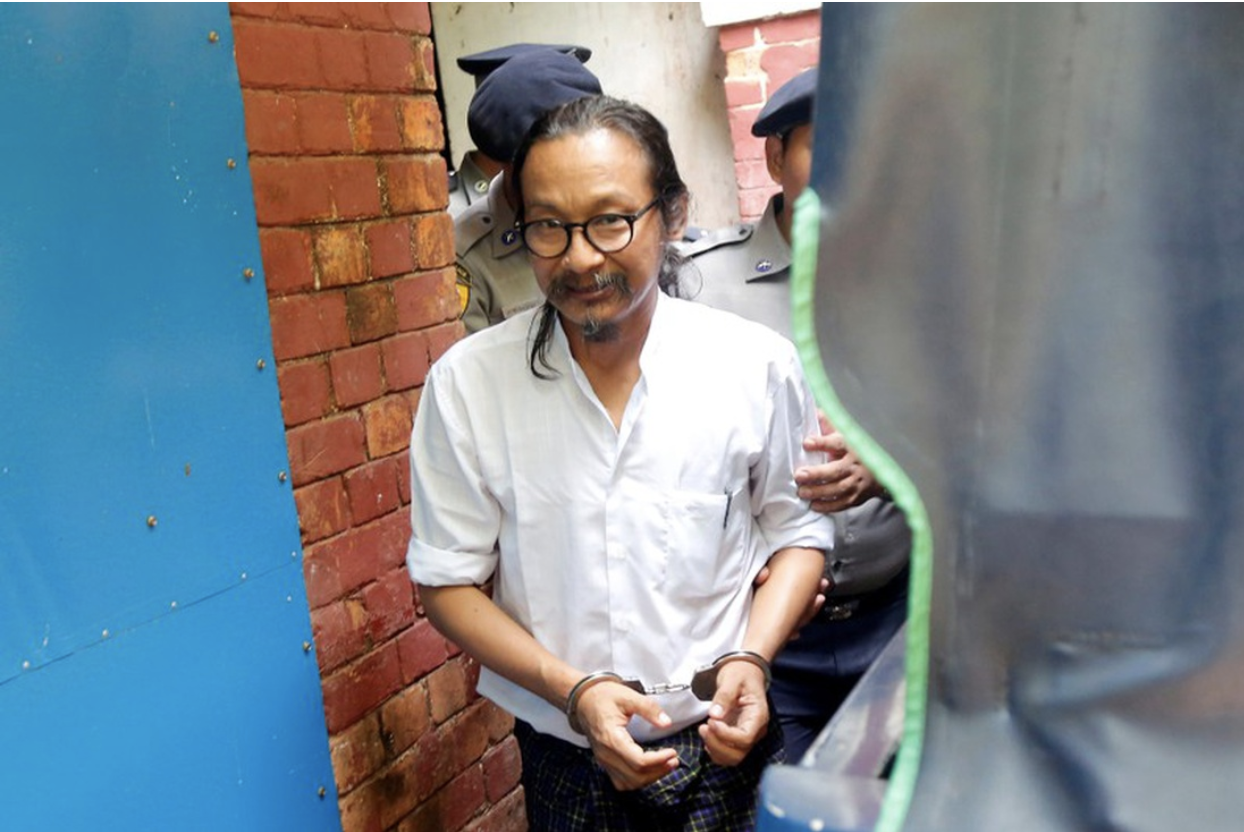
Filmmaker Min Htin Ko Ko Gyi walks out of the courtroom at Insein court in Yangon, Myanmar July 18, 2019. Courtesy of REUTERS/Myat Thu Kyaw
With Ko Ko Gyi in pre-trial detention since April 12, 2019, with no consideration of bail despite crippling health concerns (he underwent surgery for liver cancer earlier this year), the international community has come together to express uproar. PEN America, the International Documentary Film Festival Amsterdam, International Film Festival Rotterdam (IFFR), Human Rights Film Network and Amnesty International are few of the many organizations that have issued statements protesting Ko Ko Gyi’s continuous detention at Insein Prison in Yangon. Many people advocating on his behalf believe that his interest in human rights and his call-out against individual army officers rendered him vulnerable to the government’s attacks.
Following the success of Human Zoo in 2005, Ko Ko Gyi began organizing a feature-length film about the Padaung, deepening his focus on issues of justice. While traveling, he passed Inle Lake, a picture-perfect freshwater lake in southern Myanmar, and was stunned by the sight of farmers using pesticides that devastated the natural environment. Hence emerged Floating Tomatoes (2010), an introspective account of the Intha people. Famous for “leg rowing” and the cultivation of floating tomato gardens in Inle Lake, Ko Ko Gyi depicted the ways their livelihood was being jeopardized by environmental degradation. Floating Tomatoes garnered international acclaim, winning him best documentary at the 2010 Documentary Film Association of Southeast Asian States event in Hanoi.
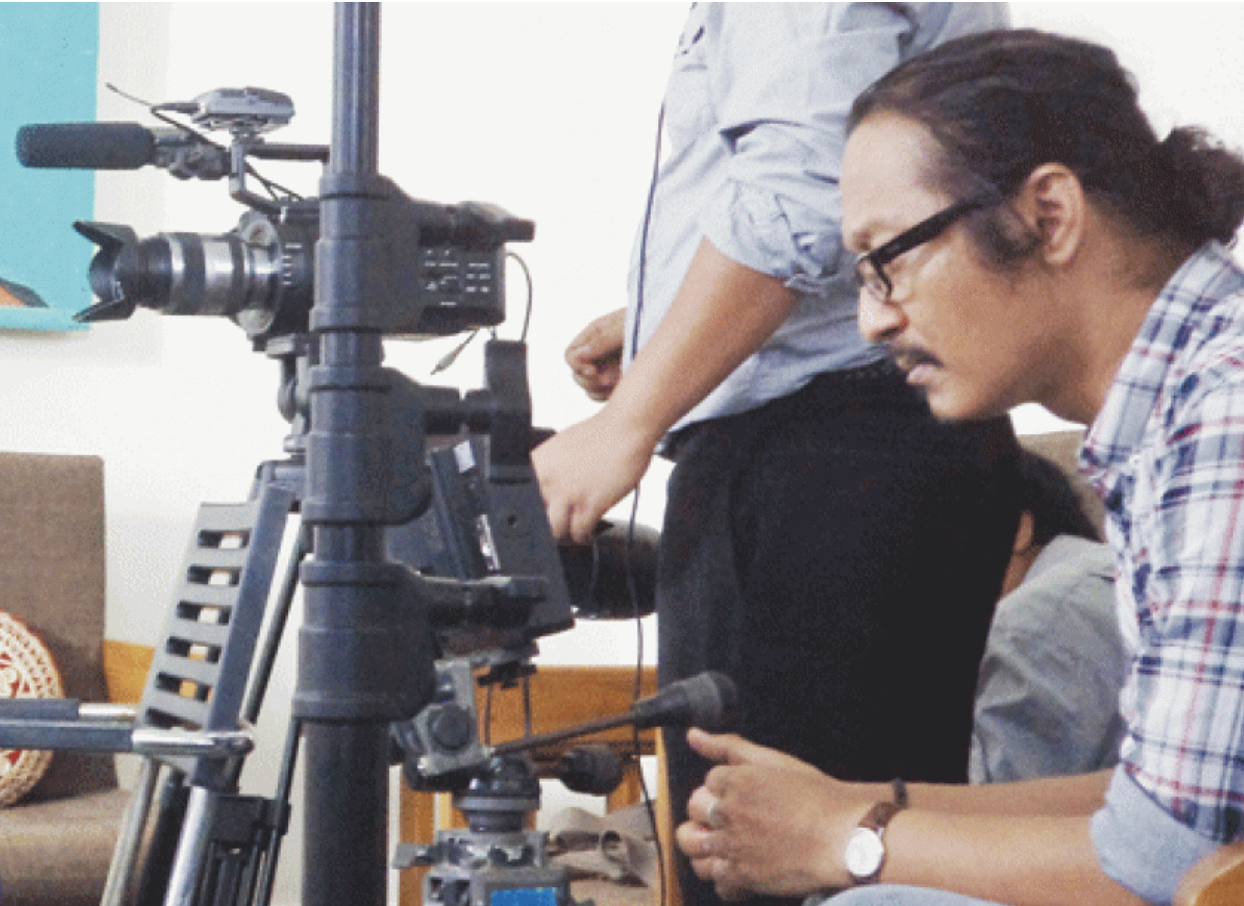
Ko Ko Gyi behind the camera
In addition to creating lauded films, Ko Ko Gyi co-founded the Human Rights, Human Dignity International Film Festival, which ran from 2013 to 2017, the first and largest of its kind in the country. The purpose was to raise public awareness of human rights issues and create a common ground between film industry professionals and local community members to discuss and debate human rights issues. Many of the local films featured at the first festival were about Burmese political prisoners, many of whom had been imprisoned for free speech advocacy by then-president Thein Sein. The subject matter was somewhat taboo and would have led to severe consequences for the filmmakers a few years prior, but the festival emerged during a period when Myanmar had relaxed its stance on censorship. Each year, filmmakers who showed work at the festival toured around the country, bringing visibility to emerging Burmese artists and cultural access to people living in remote villages across Myanmar.
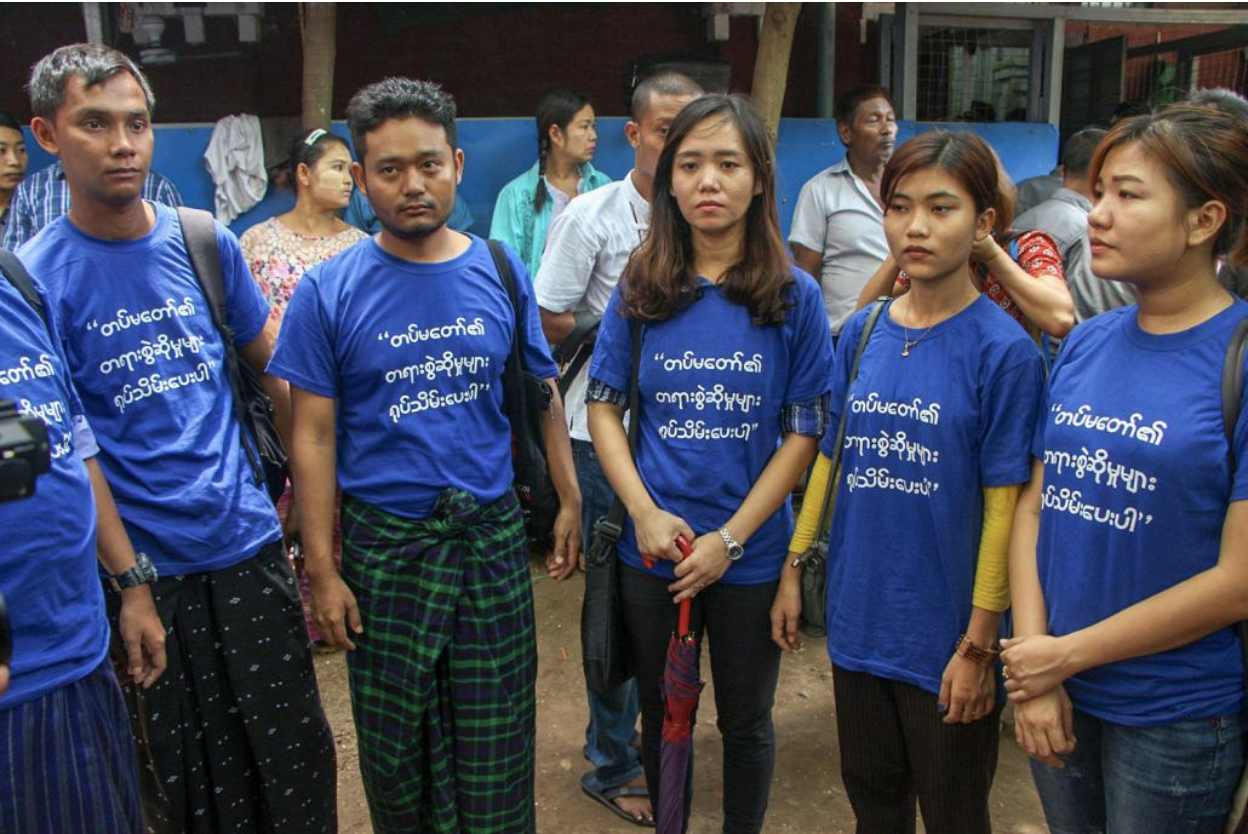
Youth activists wore blue t-shirts featuring the words in Burmese, “withdraw the Tatmadaw lawsuits.” Courtesy of Frontier Myanmar/Thuya Zaw.
In addition to bringing films to underserved communities through the Festival, Ko Ko Gyi also created the Human Dignity Film Institute, which trained young filmmakers in the region from 2013-2015. Courses lasted four-and-a-half months and international practitioners were invited to teach. Ko Ko Gyi’s students have revered him for his generosity and his principled guidance in fostering a new generation of Burmese artists.
Even from inside Insein Prison and in spite of deteriorating health, Ko Ko Gyi has stuck staunchly to his views and has continued to voice dissent. In an interview with Frontier Myanmar, he told reporters, “Even though the right to freedom of expression is included in the constitution, the situation has reverted to what it was under military rule. Freedom of expression is essential for people in society to live with dignity.”
UPDATE: On October 1, 2019, the organizers of Filmfest Hamburg announced that they would substitute gifts to filmmaker guests with a financial donation toward the costs of medical expenses for the imprisoned Myanmar filmmaker Min Htin Ko Ko Gyi.
UPDATE: On August 29, 2019, a Yangon court sentenced filmmaker Min Htin Ko Ko Gyi to one year’s imprisonment with hard labor for criticizing Myanmar’s military in personal social media posts. Ko Ko Gyi was convicted under section 505(a) of the Penal Code, which criminalizes making, publishing or sharing “any statement, rumour or report” that might induce any military service member “to mutiny or otherwise disregard or fail in his duty.”






